Last-Minute NYC Holiday Gift Guide 🎁
We’ve created a holiday gift guide with presents for the intrepid New Yorker that should arrive just in time—


Frederick Law Olmsted is considered by many as the “father of American landscape architecture,” co-designing many famous urban parks with Calvert Vaux. Olmsted and Vaux were the masterminds behind Central Park and Prospect Park, and Olmsted also designed the Niagara Falls State Park and Cadwalader Park in Trenton. However, not many New Yorkers know about Olmsted’s design of Bayard Cutting Arboretum State Park, a 691-acre state park in Great River, Long Island. The historic park on the South Shore was designed for William Bayard Cutting, a lawyer and sugar beet refiner who developed much of Red Hook in Brooklyn and operated New York City’s ferries.
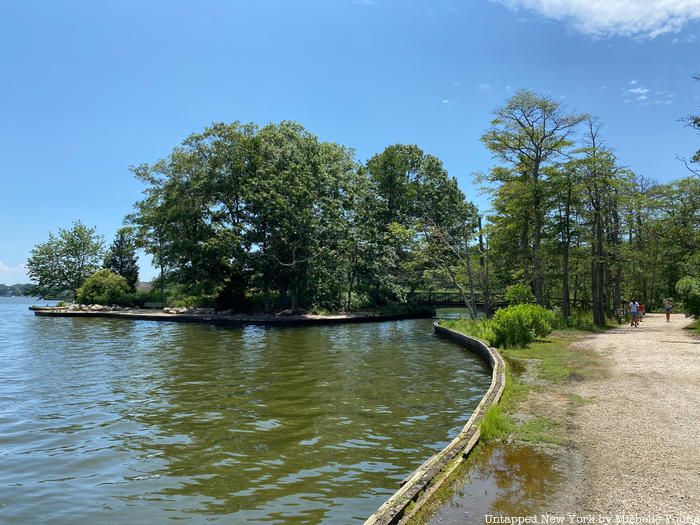
The park was donated in 1936 to the Long Island State Commission by Cutting’s wife and daughter, and the arboretum is meant to “provide an oasis of beauty and quiet for the pleasure, rest, and refreshment of those who delight in outdoor beauty; and to bring about a greater appreciation and understanding of the value and importance of informal planting.”
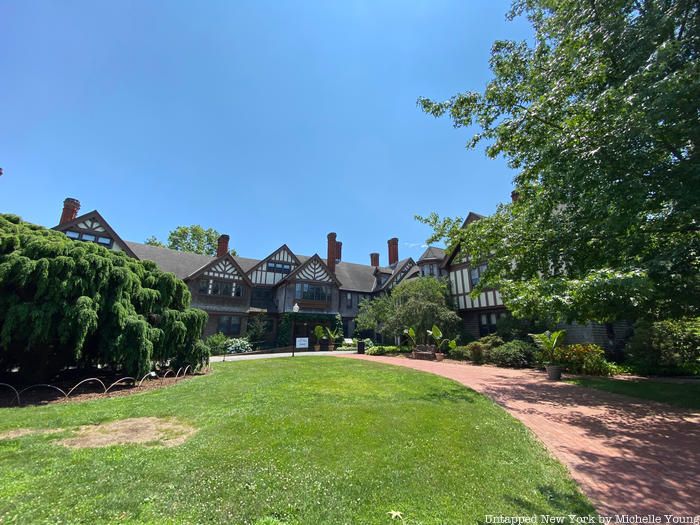
Cutting and his brother Fulton purchased over 900 acres from the nearby village of Oakdale in 1881, and Cutting commissioned architect Charles C. Haight to design the Westbrook manor mansion house in the Tudor Revival style on the property. Their grandfather Robert Cutting was the partner of Robert Fulton, widely credited with developing the first commercially successful steamboat. In 1887, towards the end of his career, Olmsted helped develop the grounds of the home, protecting much of the area’s wildlife. The brothers built a golf course on the property, the first private golf course in the United States. After an 1895 fire, a cedar log hunting lodge was built on the property, where Cutting often spent his time before his 1912 death.
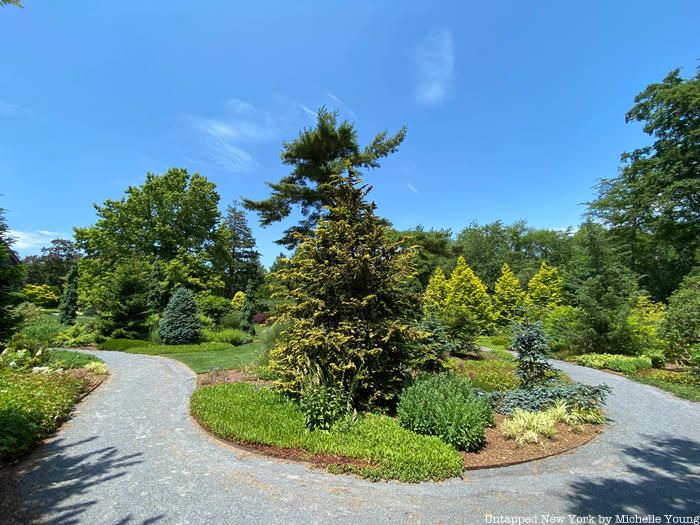
In normal operation, the Hidden Oak Cafe on the terrace of Westbrook manor house serves lunches and desserts from 11 AM to 4 PM when the park is open, and also serves Victorian High Tea with advance reservation.
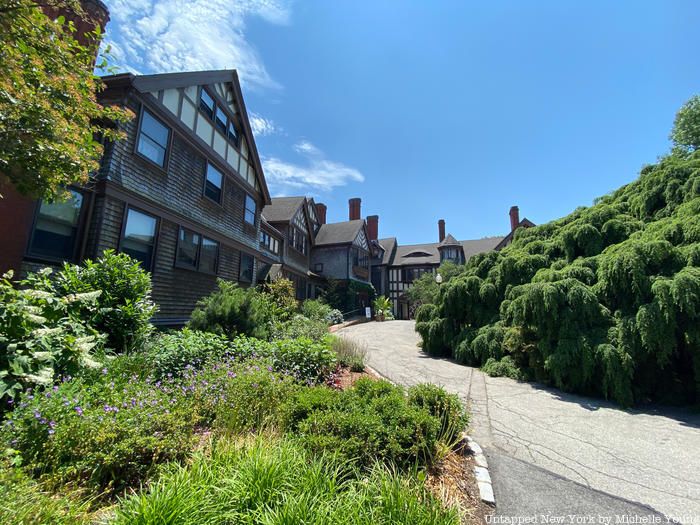
Much of Olmsted’s original design is preserved today at the state park, which officially opened to the public on May 15, 1954. Extensions were made to roads and hiking paths, and more parking spaces were added to accommodate larger crowds. Westbrook manor remains a major attraction in the park, as well as the Bayard Cutting Arboretum farm. Along the Connetquot River is the Paradise Island Nature Preserve and the River Walk, which features osprey, turtles, and century-old Bald Cypress and Alder. A number of other trails like the Woodland Garden Walk, Holly Walk, and Perennial Garden Walk are found in the south of the park.
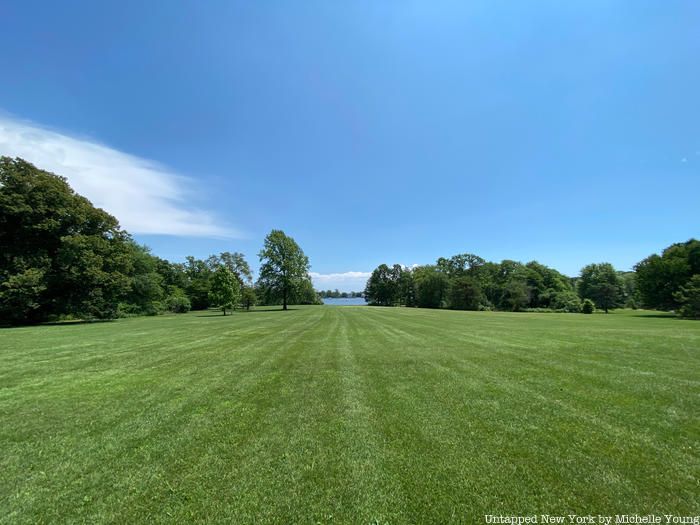
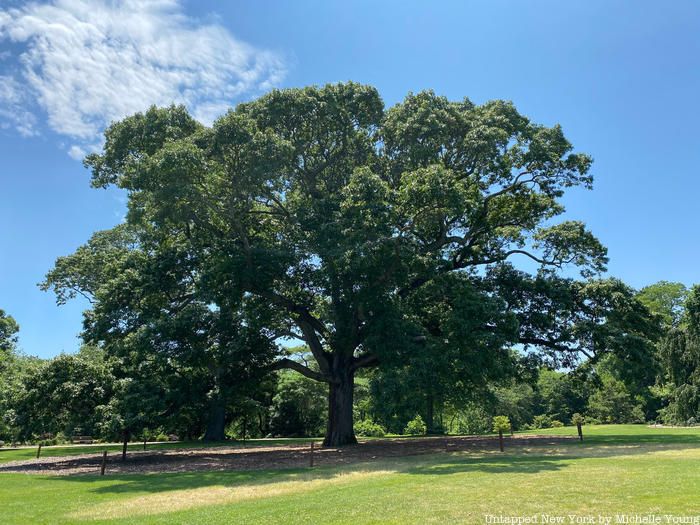
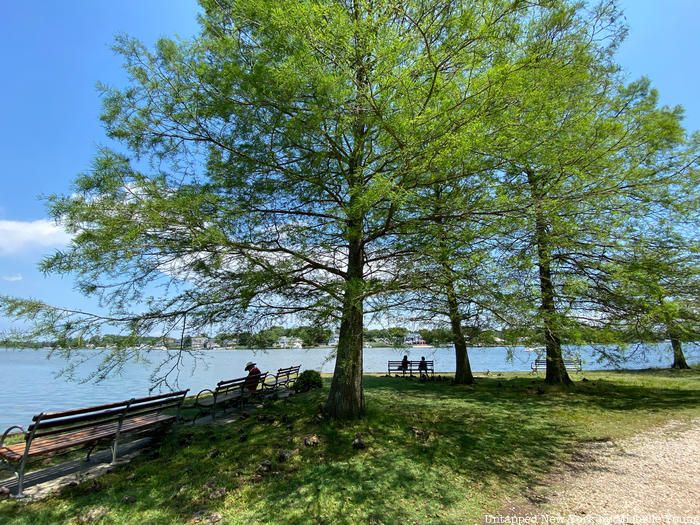
Hurricane Carol and Hurricane Gloria destroyed many mature trees in the park, but the Bayard Cutting Arboretum Horticultural Society has helped restore much of this nature through restoration projects and plant sales. The park houses some of the most substantial populations of fir, spruce, pine, cypress, hemlock, yew, and rarer conifers on Long Island. There is also a farm on the Bayard Cutting Arboretum that serves a community shared agriculture (CSA) program.
As of this past weekend, the Bayard Cutting Arboretum is open but the manor house and the Hidden Oak Cafe are not open. Accordingly, tours of the mansion are also currently paused. A parking fee of $8 is collected per vehicle from April through November, payable at a parking meter in the lot.
Next, check out the Beautiful Naval Cemetery Landscape in Brooklyn!
Subscribe to our newsletter